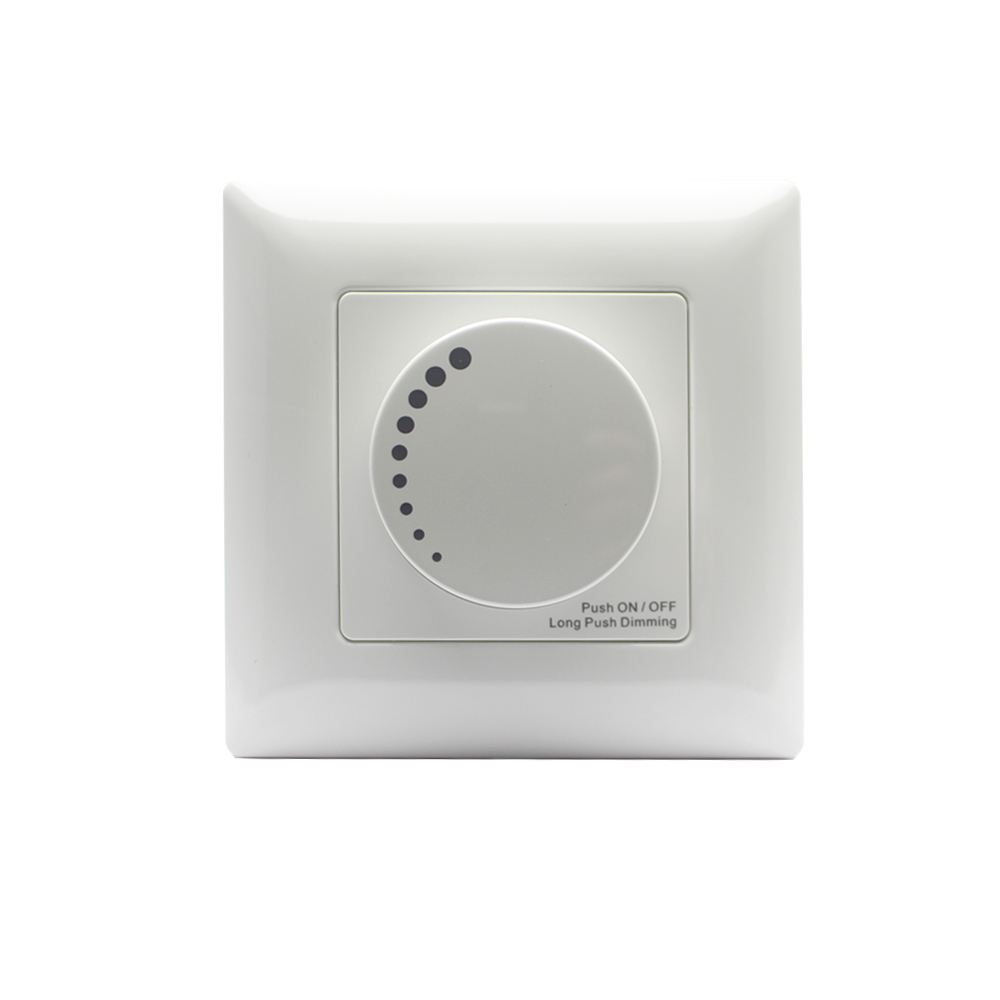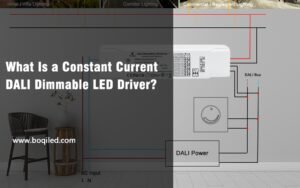When it comes to dimming your lights, understanding the type of dimmer you’re using is crucial for optimal performance. As a homeowner, electrician, or DIY enthusiast, you might be wondering whether Lutron dimmers are TRIAC dimmers, and how this impacts your lighting setups. Let me help clarify this for you.
Yes, many Lutron dimmers, such as the PD-6WCL and PD-10NXD, are TRIAC-based dimmers. These forward-phase dimmers are designed to work efficiently with a variety of lighting loads, providing smooth and reliable dimming performance.
Let’s dive deeper into the specifics of TRIAC dimmers and their applications in Lutron products.
What is a TRIAC Dimmer?
TRIAC (Triode for Alternating Current) dimmers are leading-edge dimming drivers that deliver electricity in bursts every half AC cycle, effectively controlling light intensity. This technology has been widely used due to its simplicity and effectiveness. TRIAC dimmers are particularly popular in residential settings where they are used to control the brightness of incandescent and compatible LED bulbs.
List of Lutron TRIAC Dimmers
Lutron offers several TRIAC dimmers suitable for various applications. Here are some popular models you might find useful:
- PD-6WCL: Ideal for residential use, compatible with most incandescent and LED bulbs.
- PD-10NXD: Another versatile model, known for its smooth dimming capabilities.
- DVCL-153P: A popular choice for single-pole or 3-way applications, compatible with dimmable LED and CFL bulbs.
- TGCL-153PH: Designed for easy installation and reliable performance, suitable for a variety of lighting loads.




Types of Dimming Technologies
Lutron employs various dimming technologies. Understanding these can help you make the best choice for your needs:
- TRIAC Dimming: Common in residential applications, providing cost-effective and straightforward dimming.
- Electronic Low Voltage (ELV) Dimming: Uses reverse-phase dimming for smoother control, often preferred for sensitive electronics like LEDs.
- Magnetic Low Voltage (MLV) Dimming: Ideal for magnetic low-voltage transformers, providing reliable performance with specific types of lighting.



Lutron Dimmer Models: TRIAC vs. ELV
- TRIAC Models: The PD-6WCL and PD-10NXD are notable TRIAC dimmers. These models are forward-phase dimmers suitable for a wide range of incandescent and LED lighting.
- ELV Models: Models like the DVELV-300P are reverse-phase dimmers, often used for applications requiring more delicate control, such as in LED lighting systems.
Benefits of Using TRIAC Dimmers
There are numerous benefits to using TRIAC dimmers. Here are a few that might interest you:
- Compatibility: Works with a wide range of incandescent and compatible LED bulbs.
- Cost-Effectiveness: Typically more affordable than other dimming technologies.
- Ease of Installation: Simple wiring without the need for additional signal lines.
- Reliability: Proven technology with decades of reliable performance.
Installation Tips for Lutron TRIAC Dimmers
Here are some tips for installing your Lutron TRIAC dimmers to ensure everything runs smoothly:
- Check Compatibility: Ensure your lighting load is compatible with TRIAC dimmers.
- Follow Manufacturer Guidelines: Adhere to Lutron’s installation instructions for safety and performance.
- Test the Setup: Test dimmers with your lighting system to avoid issues like flickering or buzzing.
- Professional Assistance: When in doubt, consult a professional electrician for installation.
TRIAC vs. ELV: Which One to Choose?
Choosing between TRIAC and ELV dimmers depends on your specific needs:
- TRIAC Dimmers: Best for standard incandescent and compatible LED bulbs in residential settings.
- ELV Dimmers: Ideal for more advanced lighting systems, including those using sensitive electronics and requiring smoother dimming transitions.
Understanding Forward-Phase and Reverse-Phase Dimming
It’s important to understand the difference between forward-phase and reverse-phase dimming:
- Forward-Phase (Leading-Edge) Dimming: Used in TRIAC dimmers, suitable for resistive and inductive loads. This type of dimming chops the front part of the AC waveform, which can be rougher on some electronic drivers but is typically fine for incandescent and some compatible LEDs.
- Reverse-Phase (Trailing-Edge) Dimming: Used in ELV dimmers, better for capacitive loads like LEDs. This type of dimming chops the back part of the AC waveform, providing a smoother and often quieter dimming experience, especially for sensitive electronic drivers.

Common Issues and Troubleshooting Tips
Here are some common issues you might encounter with dimmers and tips on how to troubleshoot them:
- Flickering Lights: Ensure bulb compatibility and proper wiring. Flickering can occur if the bulb is not compatible with the dimmer or if there are issues with the wiring.
- Buzzing Noise: Use high-quality bulbs and follow installation guidelines. Buzzing can be caused by the interaction between the dimmer and the bulb’s driver.
- Inconsistent Dimming: Check for compatibility issues and consider upgrading dimmer models if needed. Inconsistent dimming might be a sign that the bulb or the dimmer is not performing as expected with the current setup.
Lutron No EU Rotary Dimmer, But Boqi Have
While Lutron does not offer specific TRIAC dimmers for the European Union market, alternatives such as Boqi dimmers are available. Boqi dimmers provide similar performance and compatibility, making them a viable option for those in need of TRIAC dimming solutions in the EU. Boqi offers a range of dimmers including:
- Trailing Edge Dimmers: These dimmers use reverse-phase dimming, which is particularly suitable for sensitive electronics like LEDs, ensuring smooth and quiet dimming without flickering.
- Leading and Trailing Edge Dimmers: Combining both dimming technologies, these dimmers offer versatility and compatibility with a wider range of lighting types, providing flexibility for various lighting setups.
- Universal Dimmers: Designed to handle both leading-edge and trailing-edge dimming, universal dimmers are highly adaptable, ensuring optimal performance across different types of lighting loads.
All Boqi dimmers are EU-type, ensuring compliance with European standards, and they feature:
- Smooth Dimming: Ensures a seamless transition in light levels without flickering.
- 0-100% Dimming Range: Allows for full control over the lighting intensity, from complete off to full brightness.
- 5 Years Warranty: Providing peace of mind with long-term reliability and support.
FAQs About Lutron and TRIAC Dimmers
- What type of dimming does Lutron use? Lutron uses both TRIAC and ELV dimming technologies, depending on the application and model. This allows for flexibility in choosing the right dimmer for specific lighting needs.
- What is the difference between TRIAC and ELV dimmers? TRIAC uses leading-edge dimming, which is generally more suitable for incandescent bulbs and some compatible LEDs. ELV uses reverse-phase dimming, offering smoother and more reliable dimming for electronic low voltage applications, particularly LED lighting.
- Can I use a TRIAC dimmer with LED bulbs? Yes, but ensure the LED bulbs are compatible with TRIAC dimmers to avoid issues like flickering. Not all LED bulbs are designed to work with TRIAC dimmers, so it is important to check the manufacturer’s compatibility list.
By considering the type of dimming technology, the compatibility of your lighting loads, and the specific models available, you can make an informed decision that ensures optimal performance and longevity for your lighting system. Whether you’re upgrading your home lighting or working on a professional installation, understanding the role of TRIAC dimmers in the Lutron lineup will guide you towards achieving the perfect dimming solution.











